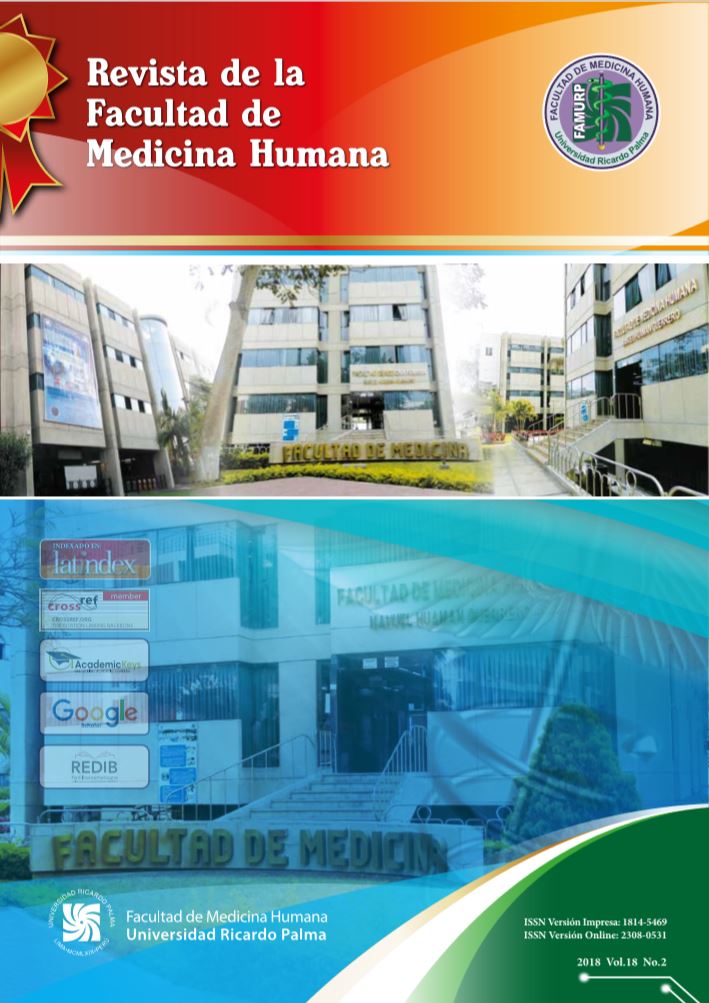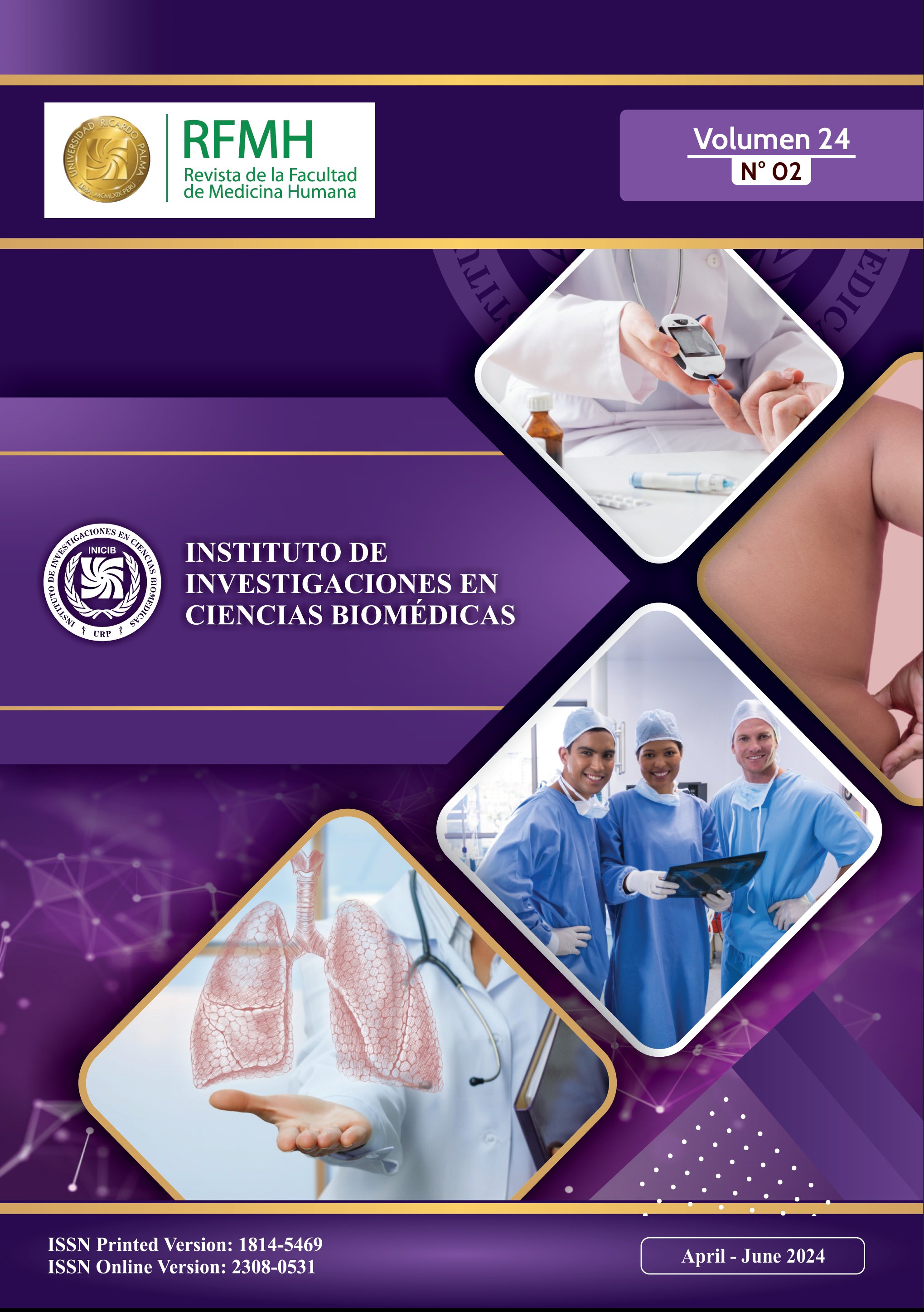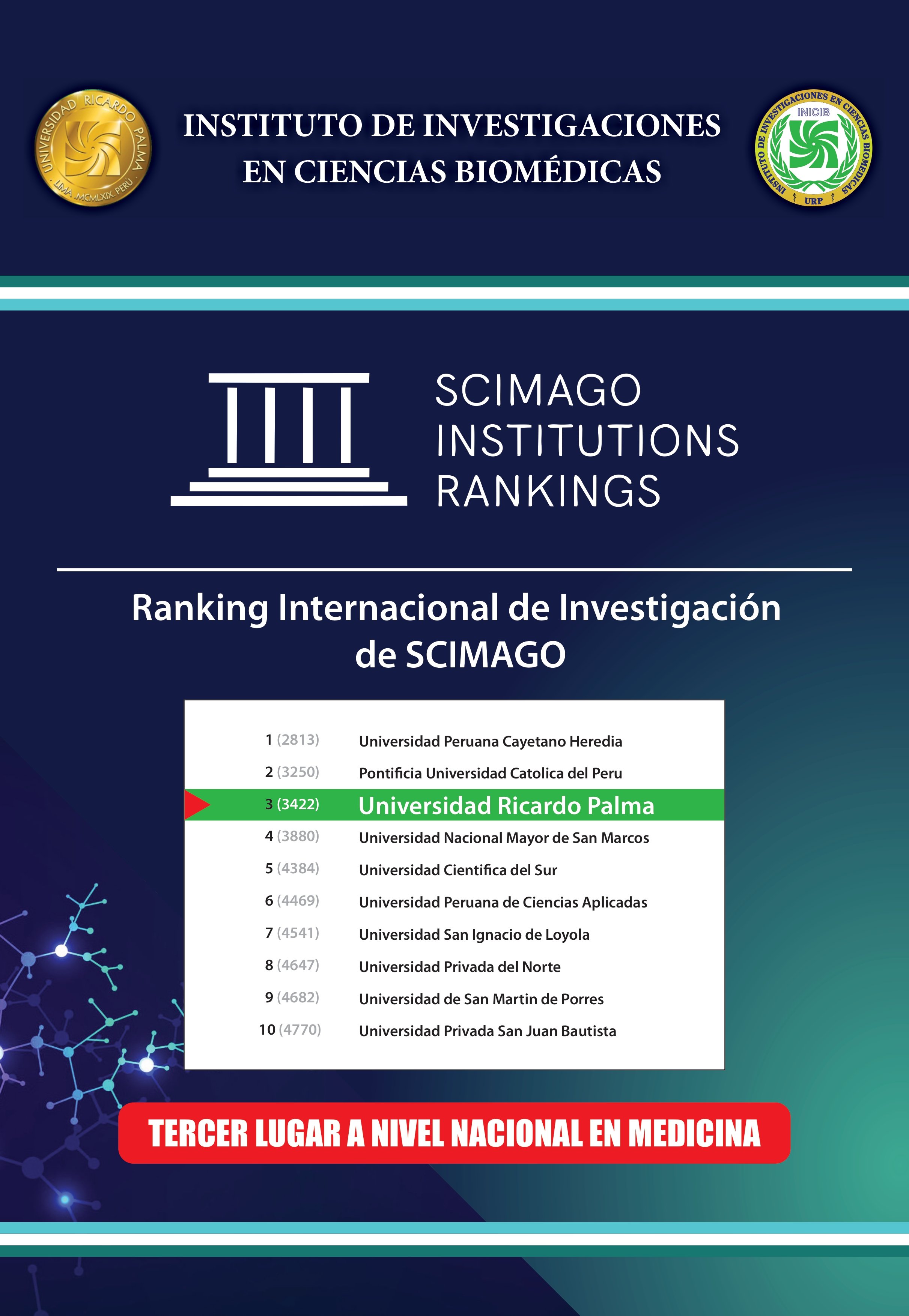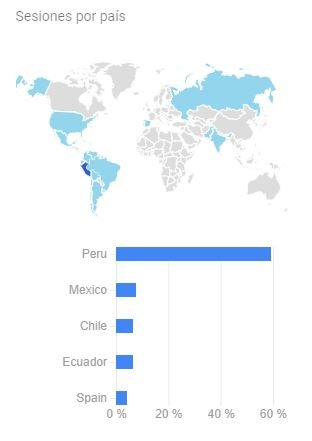Poor clinical evolution in secondary bacterial peritonitis: what are the associated factors in a peruvian hospital?
Mala evolución clínica en peritonitis bacteriana secundaria: ¿cuáles son los factores asociados en un hospital peruano?
Keywords:
Poor clinical evolution, Study of cases and controls, Risk factors, comorbiditiesAbstract
Introduction: Peritonitis is an inflammatory process of multiple etiologies that can compromise the patient's life, so it is necessary to understand the risk factors that are associated with poor clinical evolution. Objectives: To determine the factors associated with poor clinical evolution in adult patients hospitalized for peritonitis in the Emergency Hospital "José Casimiro Ulloa, 2012 - 2016". Methods: Analytical, retrospective study, of type cases and controls. The universe population of the cases will be conformed by all the patients with bad evolution (patients with a hospital stay greater than 9 days). The universe population for the control group consisted of patients with peritonitis with favorable evolution (patients with a hospital stay of less than 9 days) hospitalized for peritonitis. The descriptive and analytical analysis was done with chi square and logistic regression. Results: The sample was 126 patients. 76% of the cases were female. 55% of the cases were older than 60 years. The risk factors were female (OR = 5.7 IC = 2.4 - 13.3), age over 60 years (OR = 7.2 IC = 3.06 - 17.1), malnutrition status (OR = 6.6 IC = 2.7 - 15.6), diabetes mellitus (OR = 12.1 IC = 3.2 - 45.5), sepsis (OR = 11.1 IC = 2.2 - 54 , 5), use of quinolones (OR = 9.7 IC = 4 - 23.4), use of imipenem (OR = 4.3 IC = 1.3 - 13.8), use of metronidazole (OR = 2, 3 CI = 1.07 - 5.2), delay between diagnosis and treatment (Mean of 26 hours p:, 000), and time of illness (Mean of 81 hours p:, 000). Conclusion: The female gender and the age group in which corresponds to patients over 60 years of age presented an association in relation to a poor clinical course in patients diagnosed with peritonitis. Presenting the comorbidity "malnutrition", "diabetes mellitus", "sepsis" is associated with a poor clinical evolution. Receiving hospital antibiotic treatment with quinolones or imipenem was associated with a poor clinical course. The prolonged illness time, the delay between the time of diagnosis and initiation of treatment is associated with a poor clinical evolution. Key words: Poor clinical evolution; Study of cases and controls; Risk factors; comorbidities. (source: MeSH NLM)
DOI: 10.25176/RFMH.v18.n2.1284
Downloads
Published
How to Cite
Issue
Section
License
Copyright (c) 2018 Revista de la Facultad de Medicina Humana

This work is licensed under a Creative Commons Attribution 4.0 International License.




































